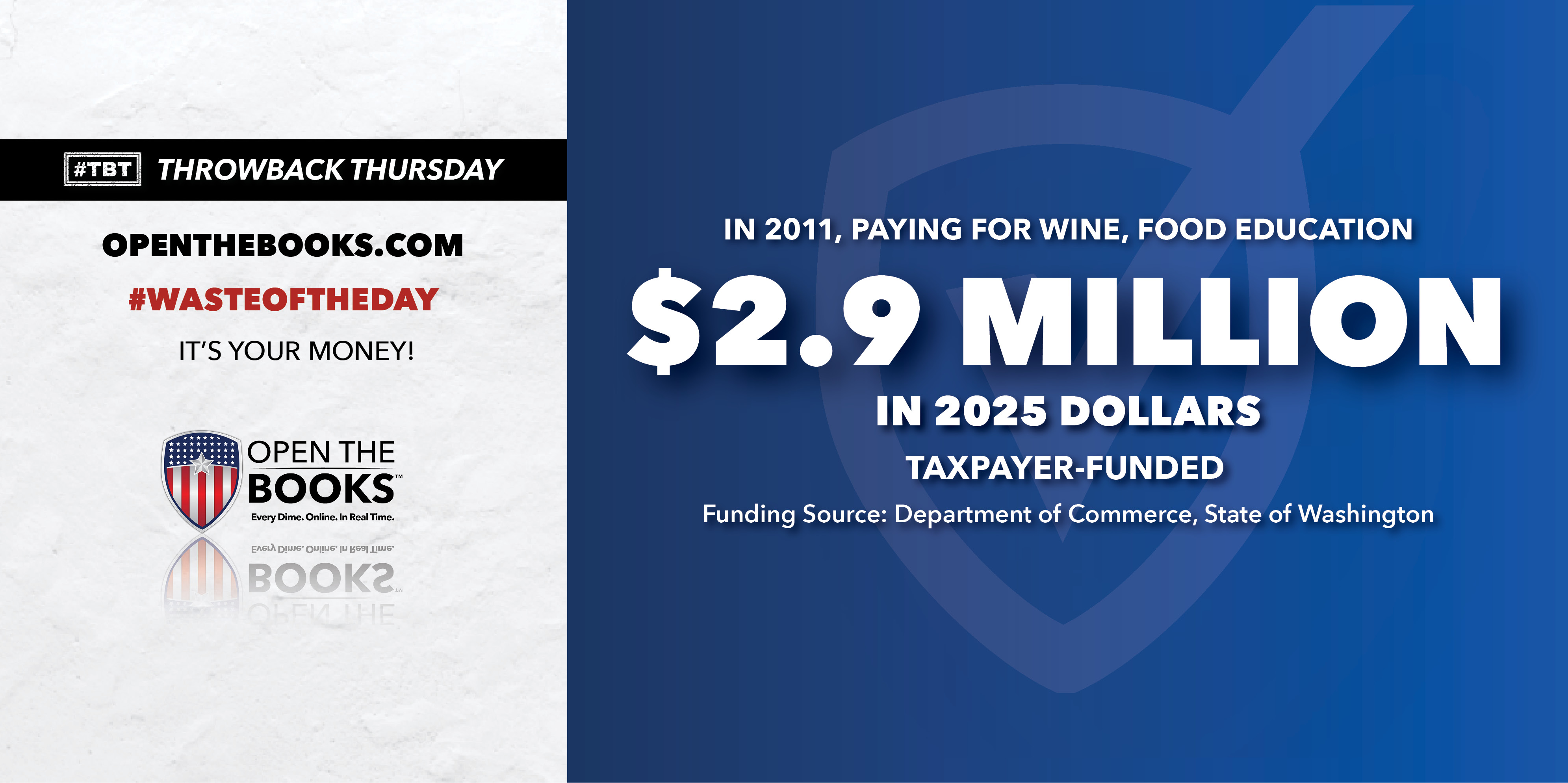Waste of the Day: Throwback Thursday - $2 Million Wine Tasting
Topline: Most Americans have likely never wondered about the “diverse wine and food industry” in Washington State, but everyone in the country helped fund the Walter Clore Wine and Culinary Center in Prosser, WA in 2011.
The self-proclaimed “destination for wine and food education” received a $2 million grant from the Department of Commerce, despite the fact that local officials were only willing to chip in $100,000.
That’s according to the “Wastebook” reporting published by the late U.S. Senator Dr. Tom Coburn. For years, these reports shined a white-hot spotlight on federal frauds and taxpayer abuses.

Coburn, the legendary U.S. Senator from Oklahoma, earned the nickname "Dr. No" by stopping thousands of pork-barrel projects using the Senate rules. Projects that he couldn't stop, Coburn included in his oversight reports.
Coburn's Wastebook 2011 included 100 examples of outrageous spending worth nearly $7 billion, including the money spent on the Walter Clore Center — which would be worth $2.9 million today.
Key facts: The Walter Clore Center had already received a $530,000 federal earmark in 2005. Combined with private funding and $2.25 million from the State of Washington, it cost $6.3 million in total.
A press release from the time bragged that the wine center in the city of Prosser included a “tasting room, kitchen, exhibits, teaching vineyards, gardens, classrooms and conference rooms.”
Benton County promised to provide $100,000 once the $2 million Department of Commerce grant was secured, but officials were hesitant once the time actually came. It took over a month for local leaders to decide to fund the Center instead of other nearby projects.
The Walter Clore Center’s board included representatives of the wine industry, tree fruit industry, Washington State University, Benton County and Prosser economic development groups, and the Washington Wine Commission, a state agency founded in 1987.
Search all federal, state and local salaries and vendor spending with the world’s largest government spending database at OpenTheBooks.com.
Background: The Walter Clore Center was not the only time the federal government thought it necessary to pay for wine education. The Department of Education’s $2.3 billion of earmarks in the 2000’s included funds for “wine studies,” mariachi music and more.
Summary: Washington’s wine center is one of many local projects that, if they have merit, should be funded by the private interests or local taxpayers who will benefit from the project.
The #WasteOfTheDay is brought to you by the forensic auditors at OpenTheBooks.com






